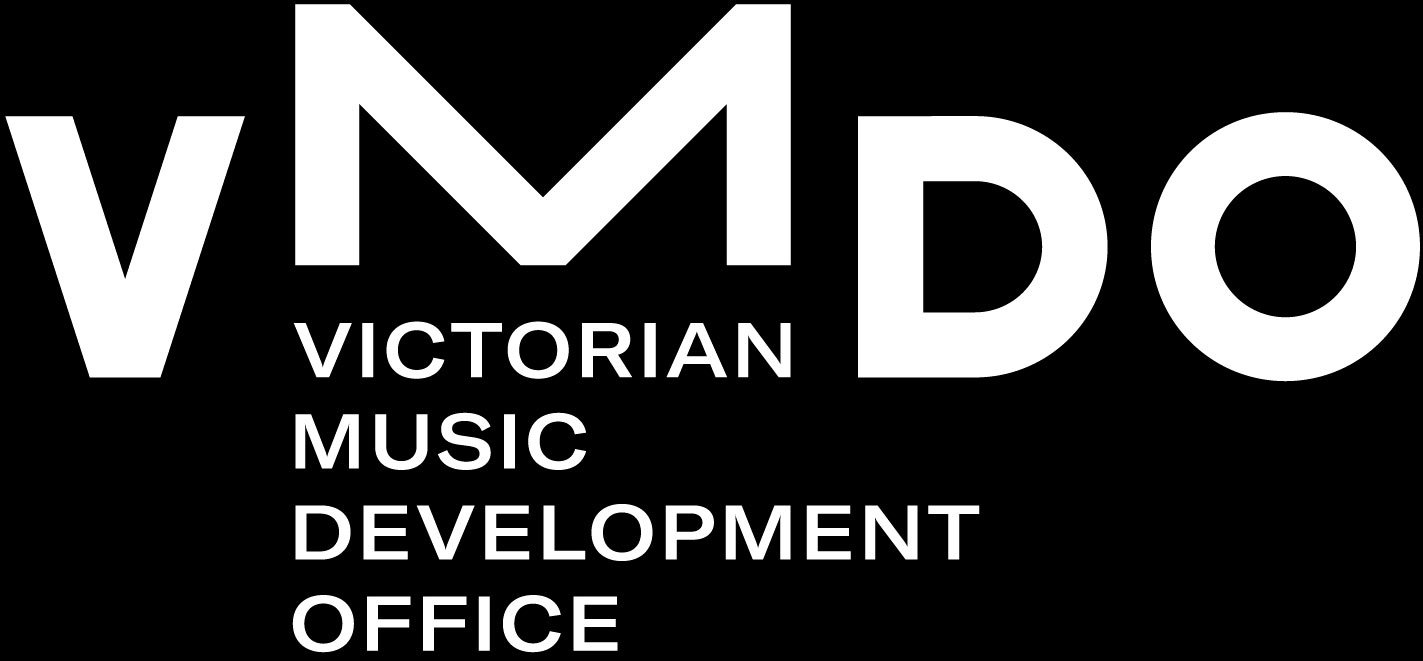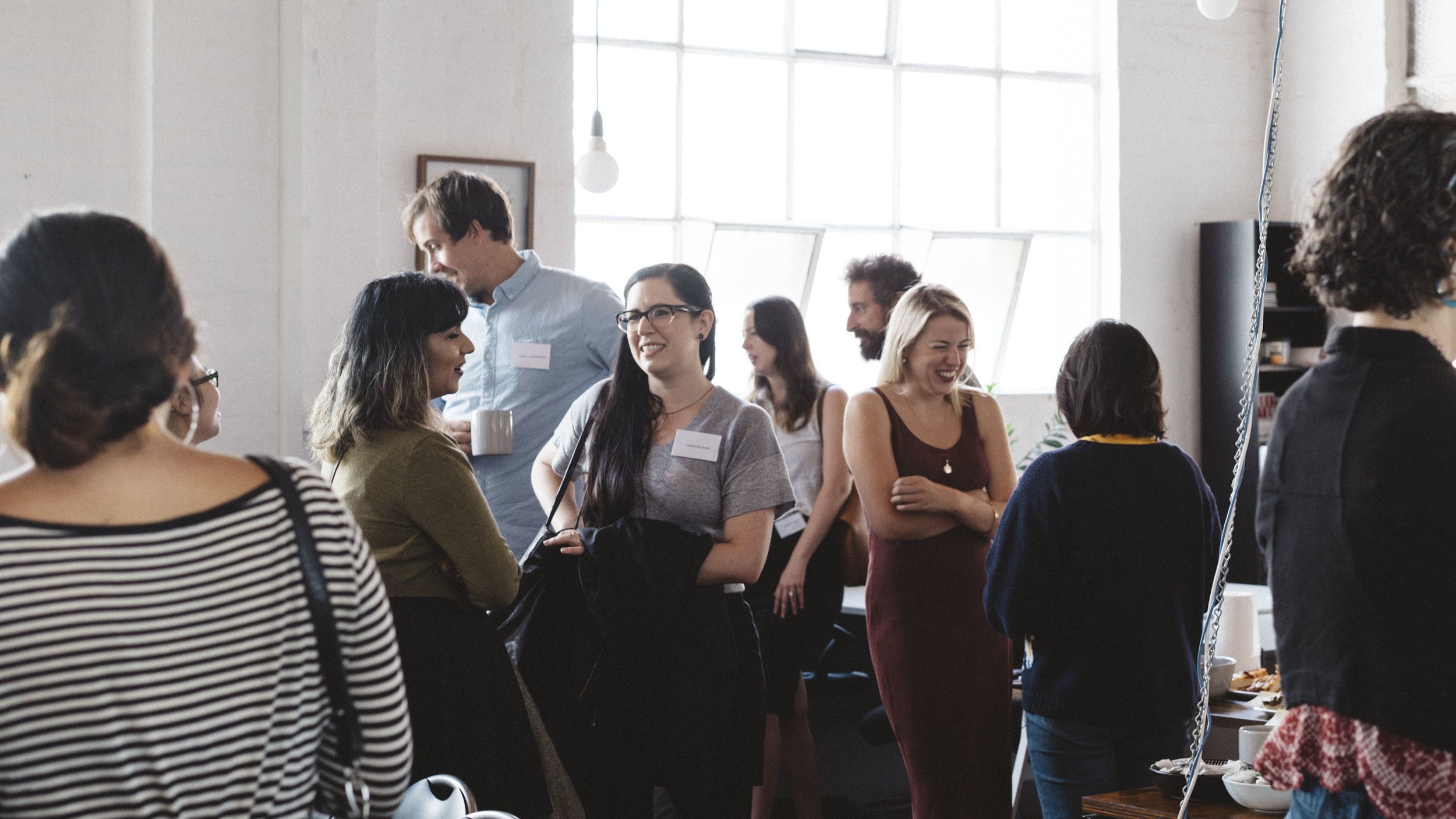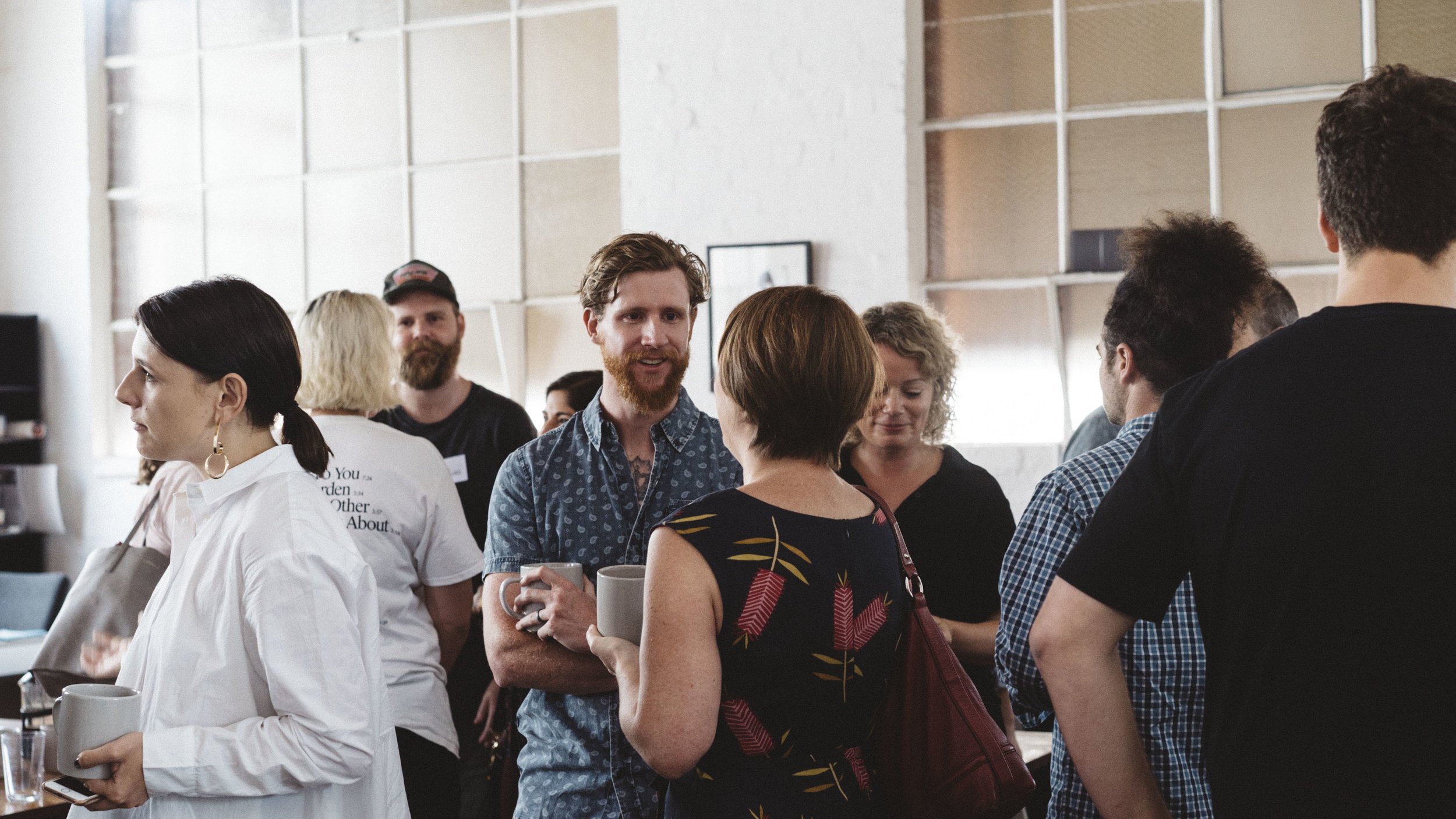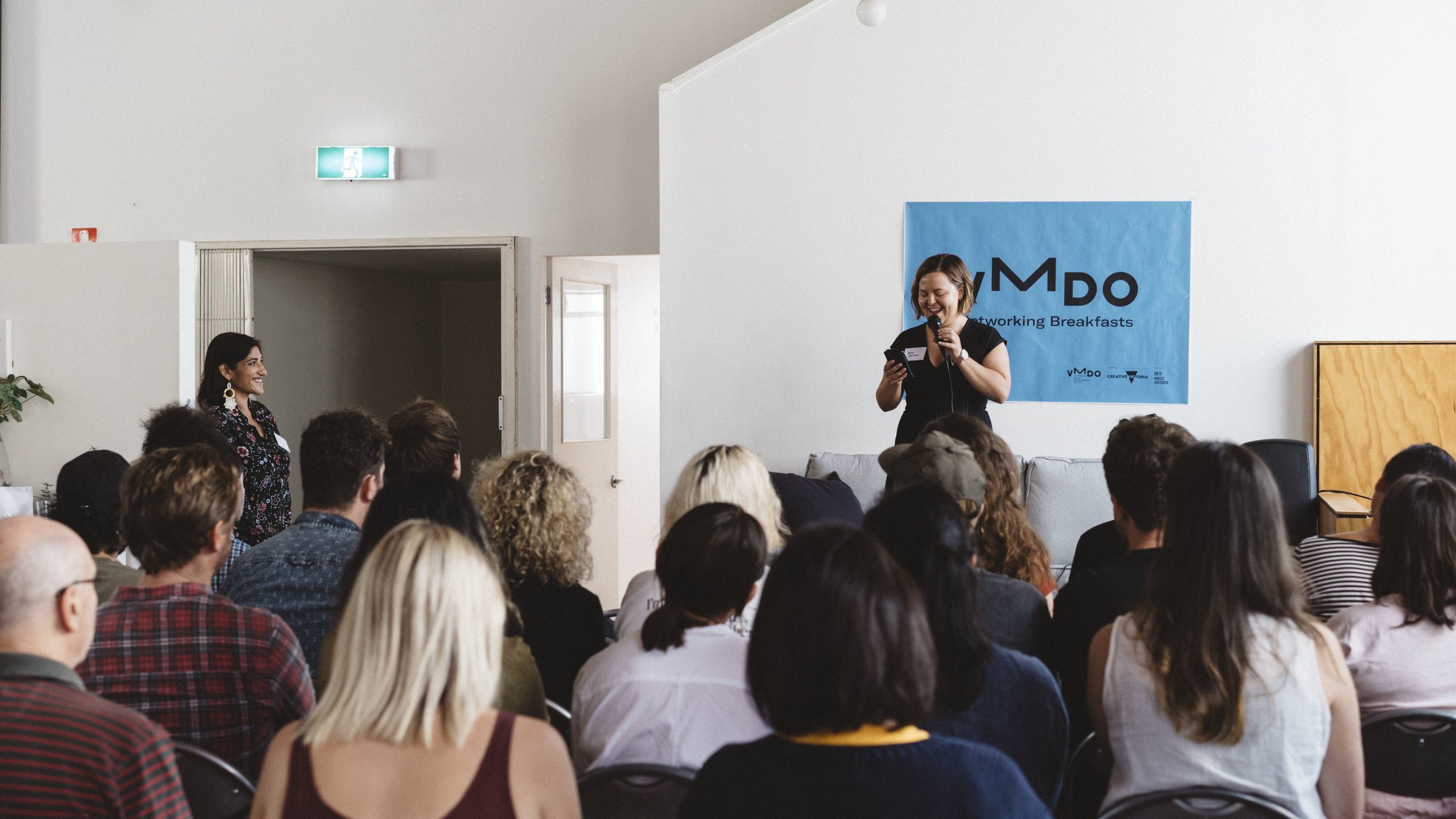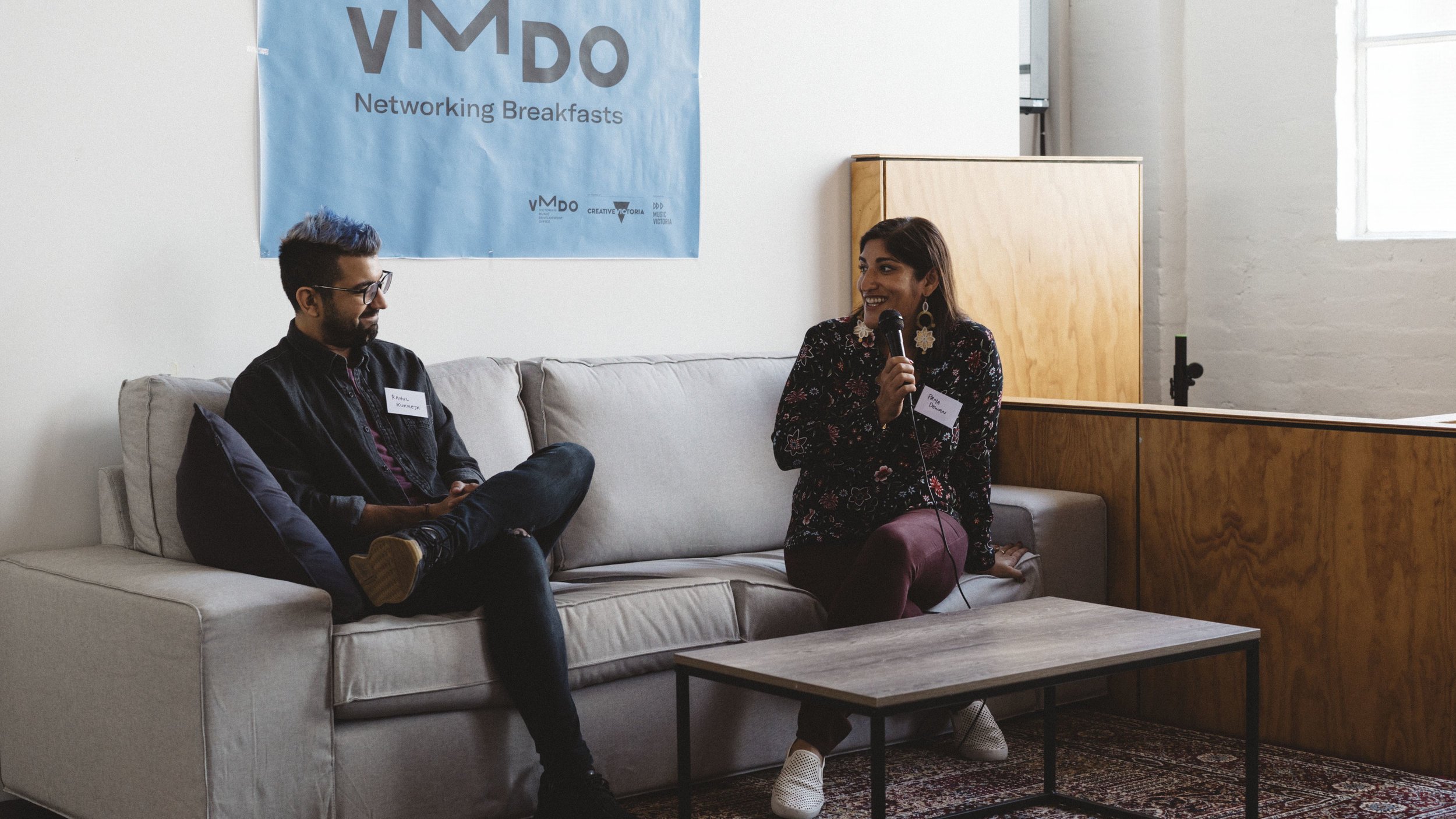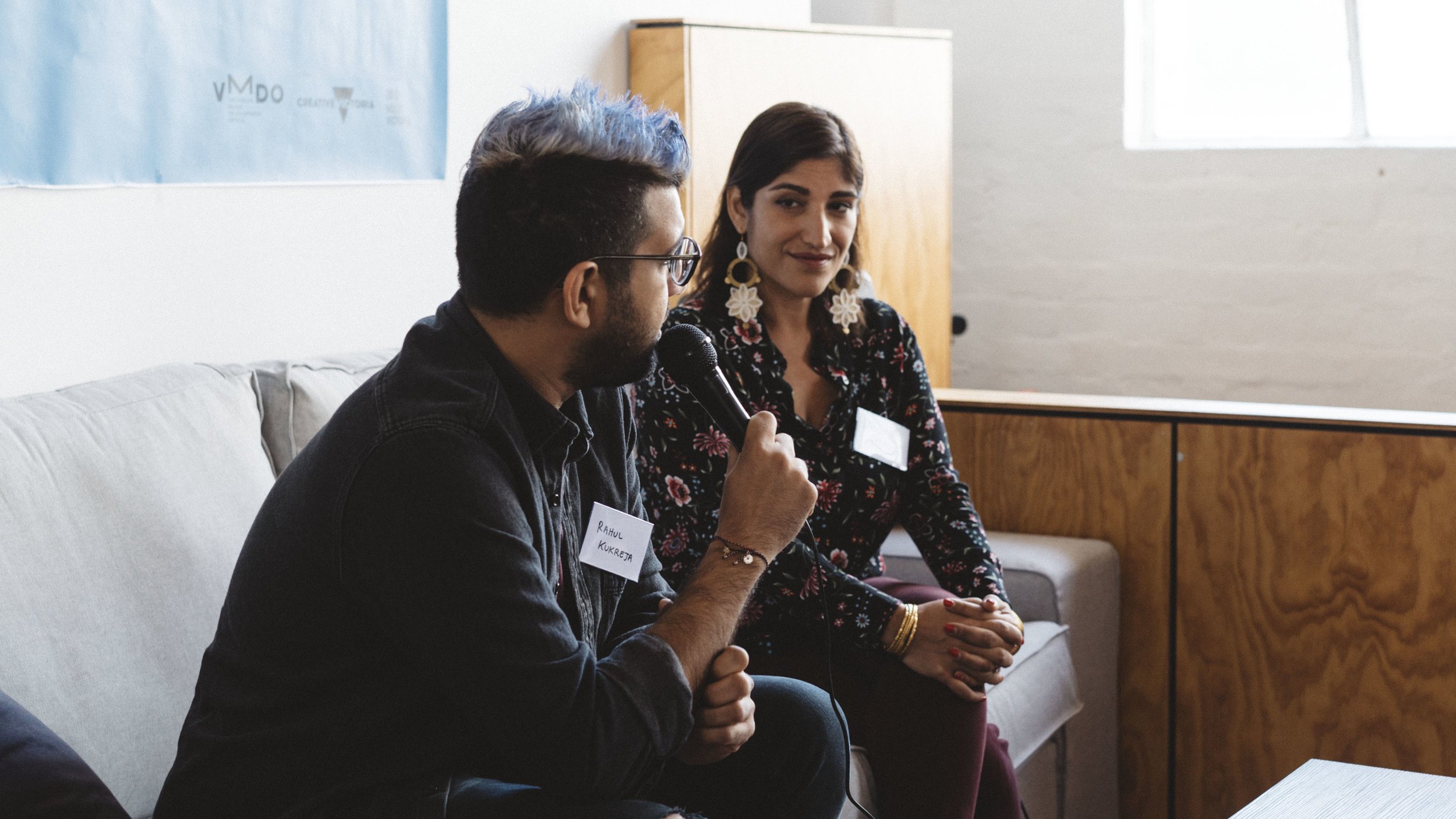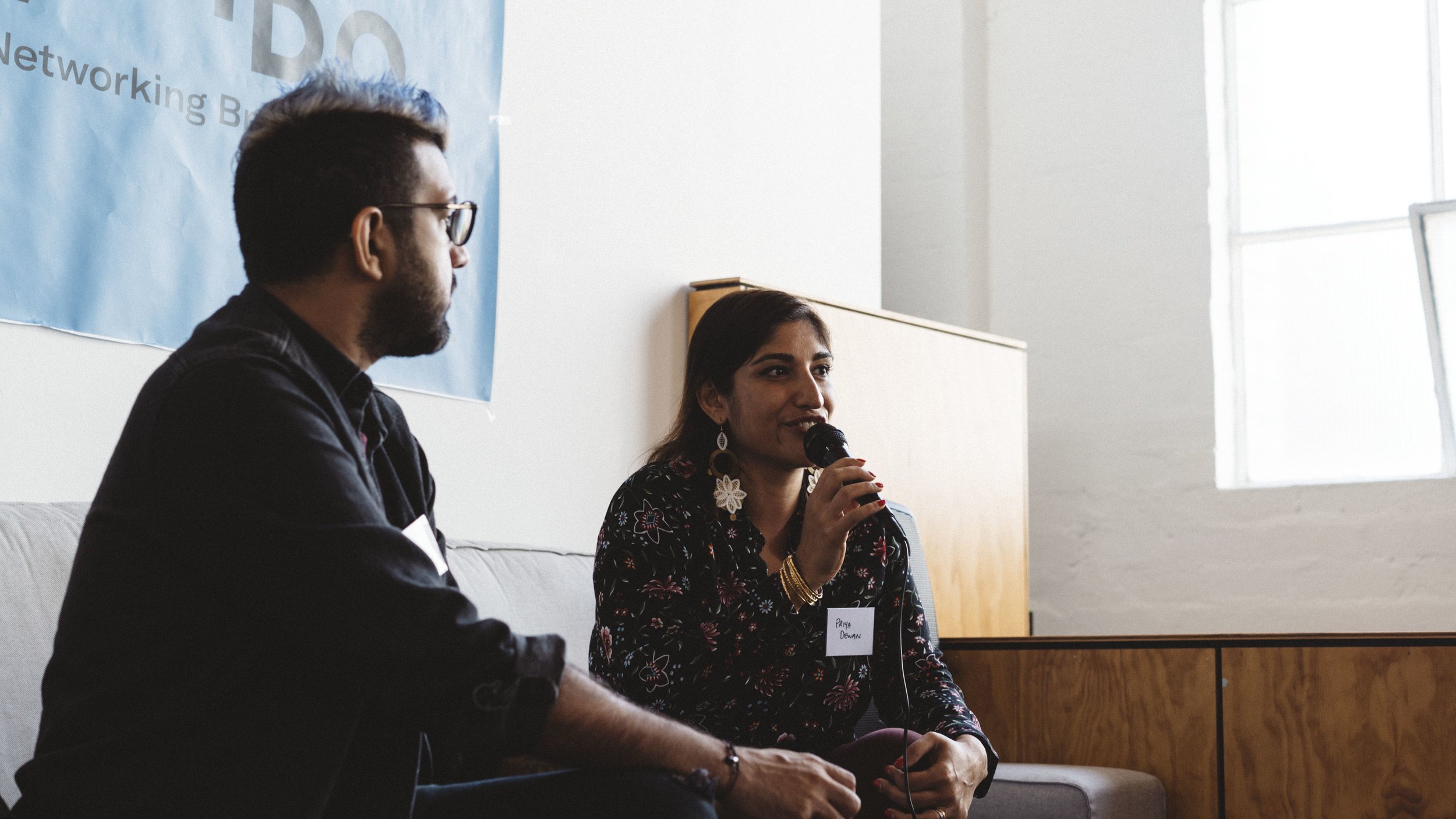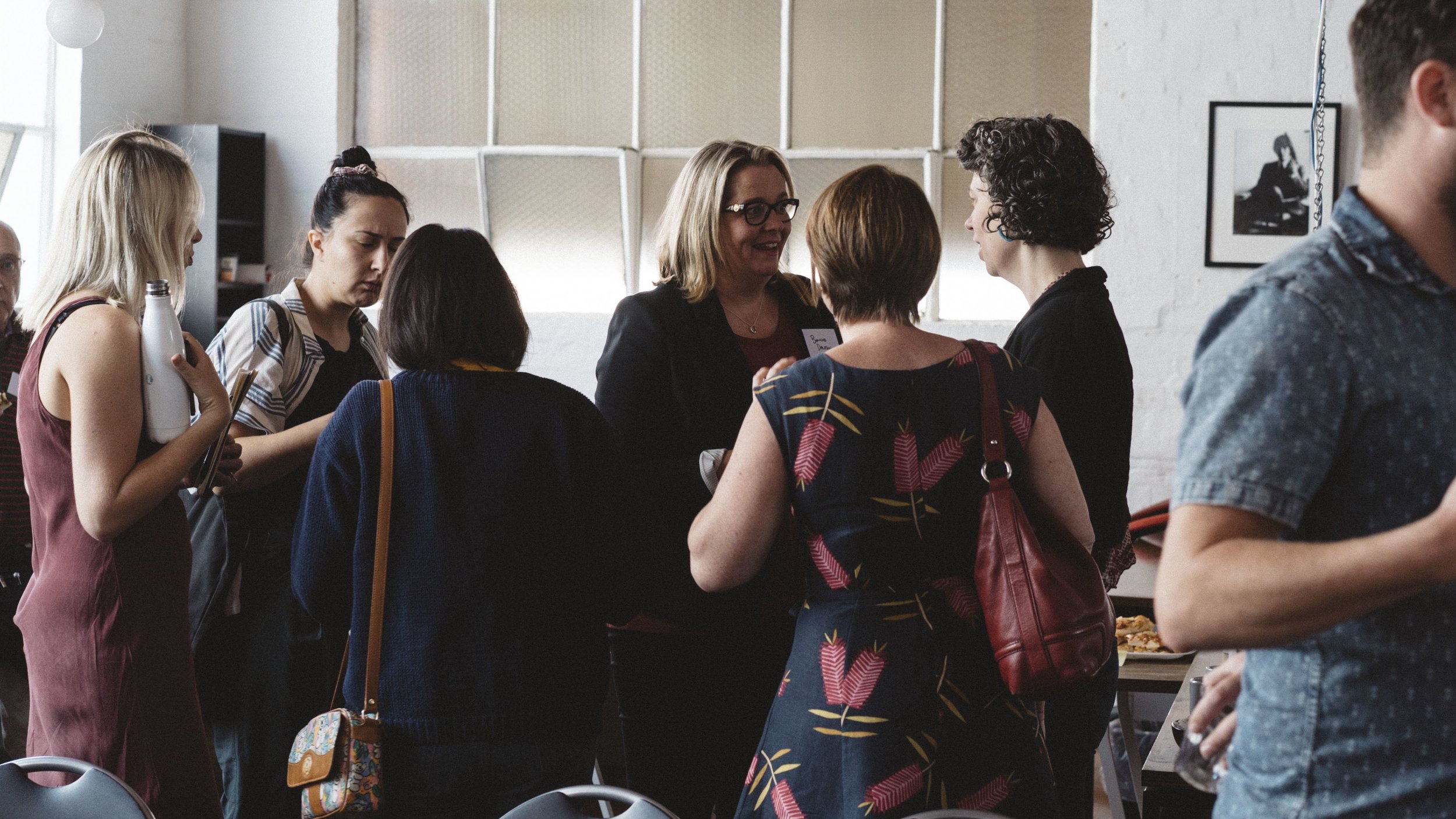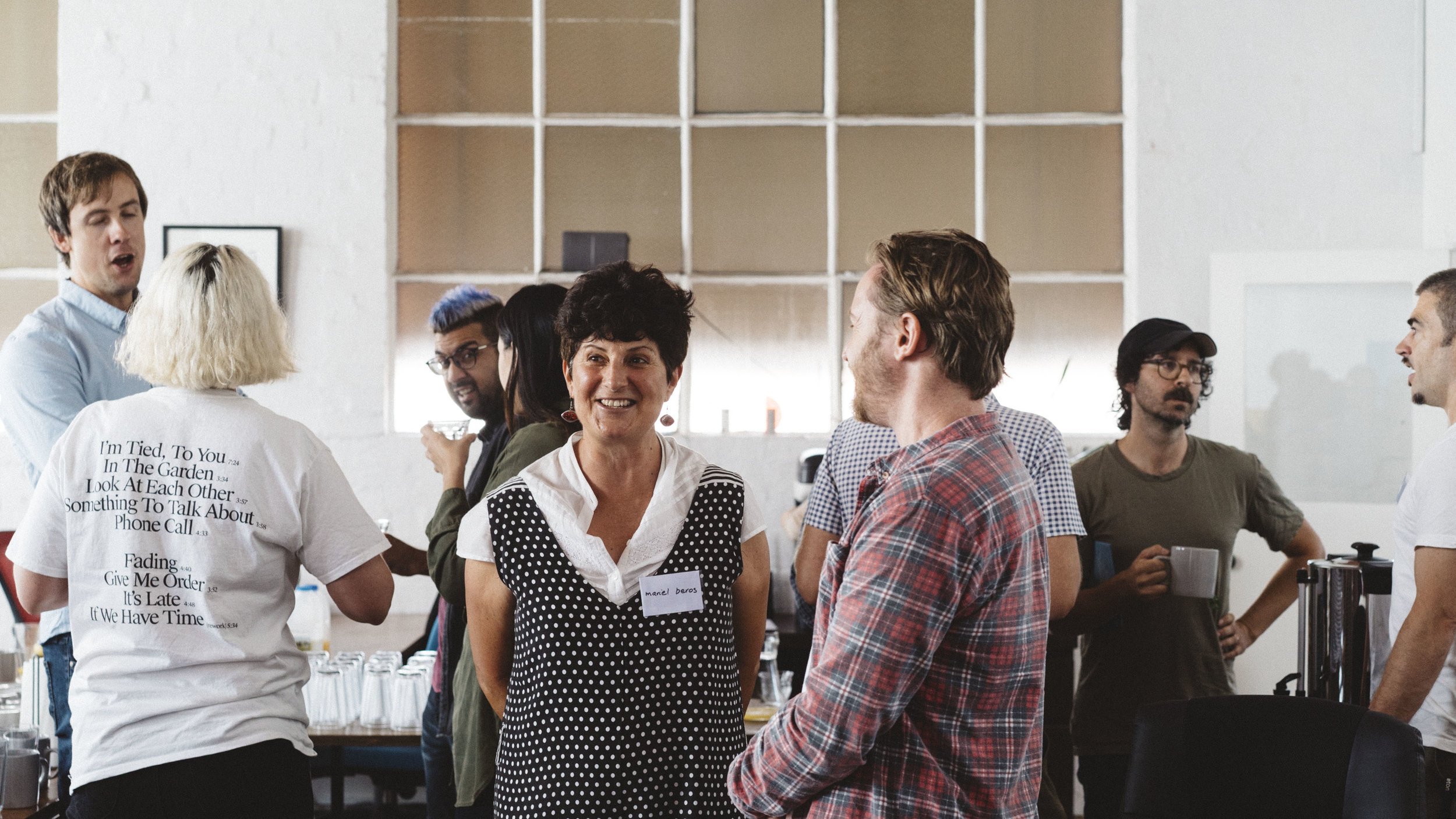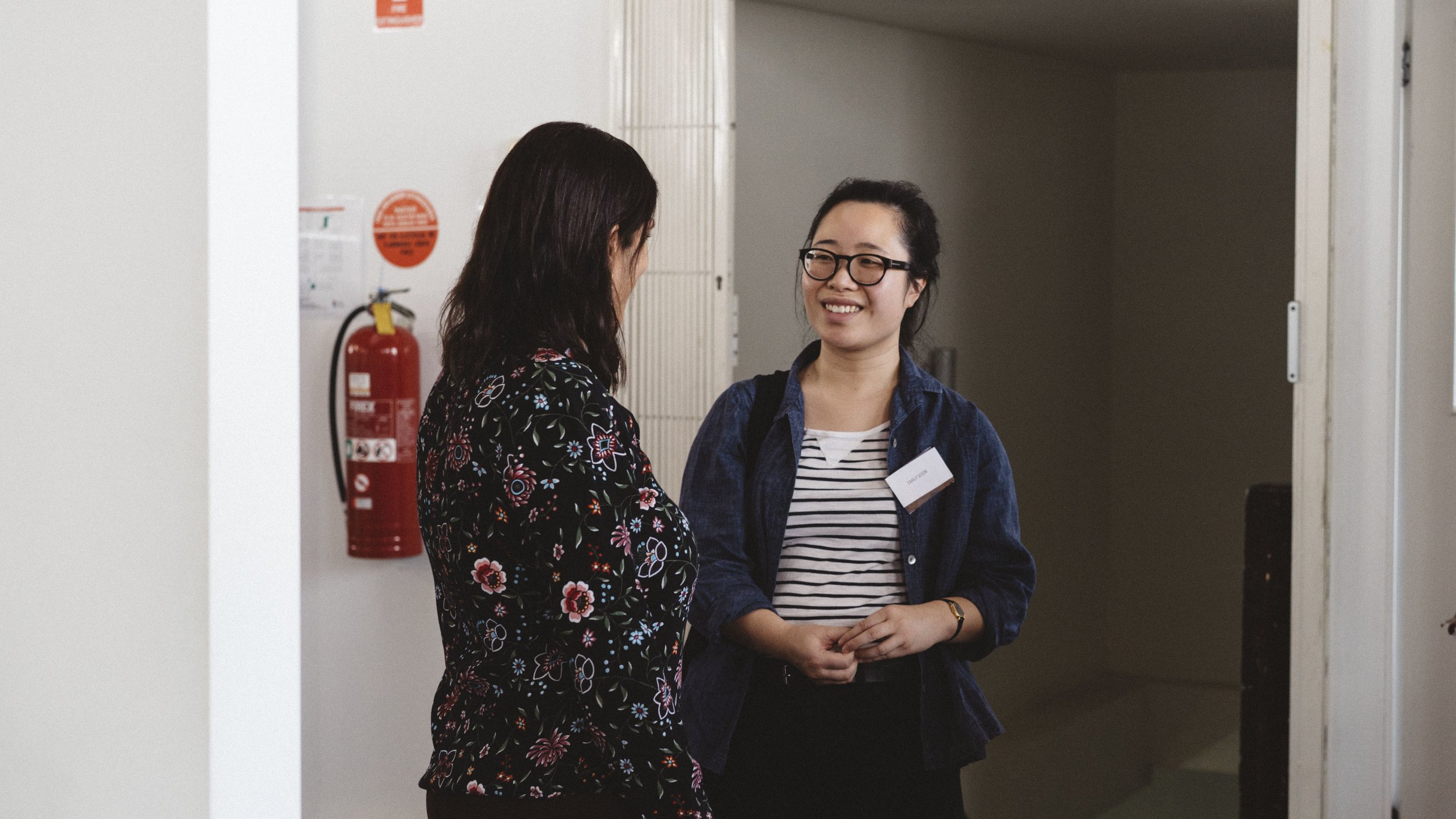VMDO - Networking Breakfast #3 Recap
L-R: Rahul Kukreja, Priya Dewan
Source: VMDO; Photographer: Sianne van Abkoude
Published 19 February, 2019
Date: Monday 11 February, 2019
Location: White Sky Hub, Collingwood
Speakers: Priya Dewan (Gig Life Pro, The Orchard), Rahul Kukreja (R K Presents / Frission 369)
VMDO’s third Networking Breakfast was centred around the ASEAN (Association of South East Asian Nations) regions and entry methods into that market. The speakers included Priya Dewan and Rahul Kukreja. Both speakers were in town to meet with Victorian music industry representatives and attend Melbourne Laneway Festival, given their strong ties to live music promotion in their home countries.
Key discussion points:
1. Background information about the speakers
2. Social media, streaming and PR in the region.
3. Touring in the region and timing.
4. Conferences, media models and songwriter collaborations.
Notes:
1a. Priya’s background is quite varied, having in-depth experience across distribution and live. Currently she is the Director of Feedback Asia (booking agency, previously representing Chvrches, Big Scary, Beach House etc) and Gig Life Asia (live performance directory) and recently launched Gig Life Pro, a curated community of music industry professionals who want to work in a transparent and collaborative way to grow the live music business in Asia Pacific. She is also the Director of The Orchard for Asia.
b. Rahul is known onstage and offstage across the South East Asia music community. He’s the lead guitarist for One Buck Short, a Malaysian rock band who have toured Australia before through Chugg Entertainment. He was a co-founder and partner of The Livescape Group of companies and now has his own booking agency, RK For You. He was the local promoter for Future Music Festival in Kuala Lumpur through Livescape at the time and he currently works on It’s The Ship – a music festival on a cruise departing from Singapore. He currently works on promoting concerts in Malaysia through Frission 369, touring artists such as Anderson .Paak, Tokimonsta, Masego, Sigor Ros, Foals, Franz Ferdinand and more.
2a. Priya and Rahul discussed the types of social media platforms used across the ASEAN region. The most popular platforms are relatively the same, which includes Facebook, YouTube and Instagram, so these are well within reach for Western artists to use with an ASEAN focus. In terms of streaming, Spotify has become quite popular over the past few years and piracy has gone down significantly. It should be noted that a lot of playlisting curating is still coming out of the US for ASEAN. One platform to be aware of is Joox (owned by Tencent), it’s really popular in the region and Joox has sponsored a lot of concerts and festivals. Label services is a relatively new concept in the region, due to a lot of content being licensed to the majors. Gig Life Pro are currently compiling a list of label services available.
b. In terms of securing local PR, a few recommended companies include Secret Singles (PR/Radio), Mad Hat PR (Malaysia), Lockermedia Creative (Indonesia – servicing 100+ radio stations). A lot of the local promoters have a lot of great internal PR teams and are starting to offer ala carte services.
3a. Talking music festivals, ones to take note of are Wanderland in Manila Philippines (March 2019), Good Vibes in Kuala Lumpur Malaysia (July) 2019, We The Fest in Jakarta Indonesia (19-21 June 2019), It’s The Ship in Singapore (November 2019), Neon Lights in Singapore (November 2019), Epizode in Phu Quoc Vietnam (New Years Eve – Jan 2020), Clockenflap in Hong Kong (December 2019) and Wonderfruit in Chonburi, Thailand.
A lot of people refer to Asia quite widely but each market has different consumption habits and interests. Priya is yet to find a strong promoter for bands in Vietnam but it’s good for DJs and there are many related festivals. DJs/Electronic music is quiet popular in the ASEAN region. There are lots of new smaller, boutique festivals popping up across Asia, with capacities of 3000 – 5000. There’s a trend around wellness/yoga elements complimenting the music.
b. Timing is important when touring ASEAN. Ideally the act wants to tour at a time they are at a breaking point where it makes financial sense for both the artist and the promoter. Often artists leave Asia/ASEAN til last, where they have much bigger production requirements which might not be on par with their ASEAN fan base. Priya and Rahul often see a disparity between where the artist is at in western markets compared to Asia. Exporting into ASEAN early is an investment for both parties.
Peking Duk are doing well in the region, starting off with club shows and then moving onto bigger music festivals, including It’s the Ship. Peking Duk found success partnering up with the right distribution companies and now have a solid following in the region.
Rahul is actively looking to promote more Australian artists and develop them from early on. There are lots of international students in Australia who take an interest in Australian artists, so there’s real audience potential across Asia. Promoters are looking to secure artists at the right time with a similar growth rate to what Peking Duk have achieved, as an example.
Rahul and Priya recommend thinking of Asia as part of the global plan, rather than leaving it to an after thought. Having on ground experience and engaging with local fans and the media frequently will pay off. Artists should consider targeted posts in the region and adjusting language/tone of social media posts to suit the local fans.
Many countries within ASEAN are predominantly English speaking, so language barriers are fairly low.
c. Priya is currently putting together a chart for working visa 101 tips for the region. Some markets are relatively straight forward, for example to play Singapore or Indonesia it’s a working permit. Visas in Malaysia are quite expensive, they’re 1,500 MYR per person (roughtly $500 AUD a head). This is usually the cost of the promoter however. Applying in advance is recommended.
d. A lot of artists come in with a fee in mind which might not translate with the promoter. Be wary of offers that are ‘too good to be true’ – as often big guarantees mean they’re backed by an investor that could back out at any moment, such as a cigarette or alcohol sponsor.
Rahul recommends breaking up the promoters across the region rather than going for just one. Priya noted when a promoter offers you 4-5 shows they tend to be selling it on. There are a few great promoters that are working in tandem (e.g Justin Sweeting in Hong Kong, Zaran Vachha in Singapore, John Uy in Philippines all work together as well as Rahul in Malaysia).
Genres that work are similar to Australia, such as indie style sounds you’ll find on Laneway Fetival. Electronic/eDM is still going strong. On the big scale, KPop and commercial sound does well. Philippines into rock/indie rock. Singapore/Malaysia/Vietnam have a good underground electronic scene. Hip Hop is interesting in the sense that there are some censorship issues in the region. It’s growing at a huge rate outside of Asia but it’s a little different within. Indie Hip Hop artists can do well at 500 – 800 capacity venues. It pays to be on the lookout for collaborative opportunities with local indie artists.
4a. In terms of conferences in the region, Music Matters has an established reputation but may be better suited to senior/major label industry over showcasing artists. In terms of first plays in the markets, Priya suggested festival performances may be better suited, especially when playing the right festival with the right positioning on the lineup. MU:CON conference in Seoul, South Korea exists however it is more focused on exporting Korean acts, rather than import.
b. An audience member asked, are new media models such as 88rising taking off? Rahul commented they’re much stronger outside of Asia and he didn’t think it was working within the region.
c. Do any songwriter collaborations exist? Elements in the Philippines is worthwhile looking into, for Australian songwriters to meet with others from across Asia.
Interested in attending our next Networking Breakfast? Find out more here.
